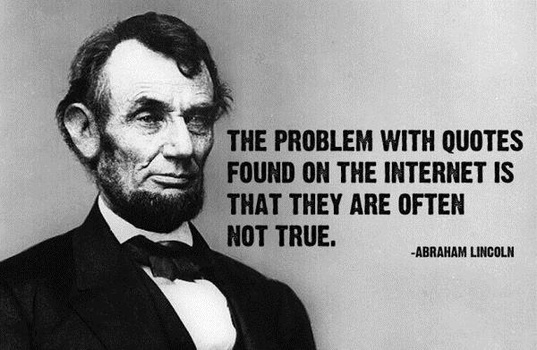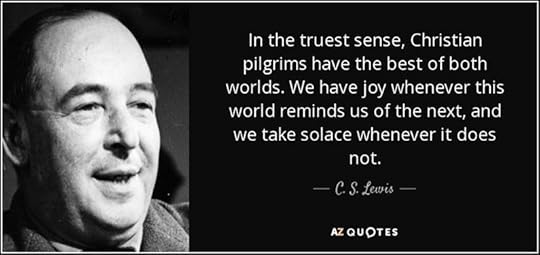Randy Alcorn's Blog, page 108
December 31, 2018
A Chinese Pastor’s Declaration of Faithful Disobedience

Last September, I shared a blog post about increased persecution in China, which so many believers, including some American Christian leaders, still imagine is long gone. Since that time, reports coming out of China demonstrate that persecution is only ramping up, with police even being given quotas for arrests of Christians.
The following letter was written by Pastor Wang Yi, senior pastor of Early Rain Covenant Church, who along with his wife and over 100 members of the church was arrested by Chinese authorities earlier this month. This is not just good for information on persecution in China—it also models a radical commitment to Christ that we, certainly I, can learn from. —Randy Alcorn
My Declaration of Faithful Disobedience
Originally posted on China Partnership
Editor’s note: Over 100 members of Early Rain Covenant Church in Chengdu, China, were arrested beginning Sunday, December 9. At the time of publication of this translation, arrests are still being made. Among those taken away were Pastor Wang Yi, senior pastor of Early Rain, and his wife, Jiang Rong, who have not been heard from since Sunday.
Foreseeing this circumstance, Pastor Wang Yi wrote the declaration below to be published by his church should he be detained for more than 48 hours . In it he explains the meaning and necessity of faithful disobedience, how it is distinct from political activism or civil disobedience, and how Christians should carry it out. We thank Brent Pinkall and Amy Cheung for their contributions in translating this letter.
On the basis of the teachings of the Bible and the mission of the gospel, I respect the authorities God has established in China. For God deposes kings and raises up kings. This is why I submit to the historical and institutional arrangements of God in China.
As a pastor of a Christian church, I have my own understanding and views, based on the Bible, about what righteous order and good government is. At the same time, I am filled with anger and disgust at the persecution of the church by this Communist regime, at the wickedness of their depriving people of the freedoms of religion and of conscience. But changing social and political institutions is not the mission I have been called to, and it is not the goal for which God has given his people the gospel.
For all hideous realities, unrighteous politics, and arbitrary laws manifest the cross of Jesus Christ, the only means by which every Chinese person must be saved. They also manifest the fact that true hope and a perfect society will never be found in the transformation of any earthly institution or culture but only in our sins being freely forgiven by Christ and in the hope of eternal life.
As a pastor, my firm belief in the gospel, my teaching, and my rebuking of all evil proceeds from Christ’s command in the gospel and from the unfathomable love of that glorious King. Every man’s life is extremely short, and God fervently commands the church to lead and call any man to repentance who is willing to repent. Christ is eager and willing to forgive all who turn from their sins. This is the goal of all the efforts of the church in China—to testify to the world about our Christ, to testify to the Middle Kingdom about the Kingdom of Heaven, to testify to earthly, momentary lives about heavenly, eternal life. This is also the pastoral calling that I have received.
For this reason, I accept and respect the fact that this Communist regime has been allowed by God to rule temporarily. As the Lord’s servant John Calvin said, wicked rulers are the judgment of God on a wicked people, the goal being to urge God’s people to repent and turn again toward Him. For this reason, I am joyfully willing to submit myself to their enforcement of the law as though submitting to the discipline and training of the Lord.
At the same time, I believe that this Communist regime’s persecution against the church is a greatly wicked, unlawful action. As a pastor of a Christian church, I must denounce this wickedness openly and severely. The calling that I have received requires me to use non-violent methods to disobey those human laws that disobey the Bible and God. My Savior Christ also requires me to joyfully bear all costs for disobeying wicked laws.
But this does not mean that my personal disobedience and the disobedience of the church is in any sense “fighting for rights” or political activism in the form of civil disobedience, because I do not have the intention of changing any institutions or laws of China. As a pastor, the only thing I care about is the disruption of man’s sinful nature by this faithful disobedience and the testimony it bears for the cross of Christ.
As a pastor, my disobedience is one part of the gospel commission. Christ’s great commission requires of us great disobedience. The goal of disobedience is not to change the world but to testify about another world.
For the mission of the church is only to be the church and not to become a part of any secular institution. From a negative perspective, the church must separate itself from the world and keep itself from being institutionalized by the world. From a positive perspective, all acts of the church are attempts to prove to the world the real existence of another world. The Bible teaches us that, in all matters relating to the gospel and human conscience, we must obey God and not men. For this reason, spiritual disobedience and bodily suffering are both ways we testify to another eternal world and to another glorious King.
This is why I am not interested in changing any political or legal institutions in China. I’m not even interested in the question of when the Communist regime’s policies persecuting the church will change. Regardless of which regime I live under now or in the future, as long as the secular government continues to persecute the church, violating human consciences that belong to God alone, I will continue my faithful disobedience. For the entire commission God has given me is to let more Chinese people know through my actions that the hope of humanity and society is only in the redemption of Christ, in the supernatural, gracious sovereignty of God.
If God decides to use the persecution of this Communist regime against the church to help more Chinese people to despair of their futures, to lead them through a wilderness of spiritual disillusionment and through this to make them know Jesus, if through this he continues disciplining and building up his church, then I am joyfully willing to submit to God’s plans, for his plans are always benevolent and good.
Precisely because none of my words and actions are directed toward seeking and hoping for societal and political transformation, I have no fear of any social or political power. For the Bible teaches us that God establishes governmental authorities in order to terrorize evildoers, not to terrorize doers of good. If believers in Jesus do no wrong then they should not be afraid of dark powers. Even though I am often weak, I firmly believe this is the promise of the gospel. It is what I’ve devoted all of my energy to. It is the good news that I am spreading throughout Chinese society.
I also understand that this happens to be the very reason why the Communist regime is filled with fear at a church that is no longer afraid of it.
If I am imprisoned for a long or short period of time, if I can help reduce the authorities’ fear of my faith and of my Savior, I am very joyfully willing to help them in this way. But I know that only when I renounce all the wickedness of this persecution against the church and use peaceful means to disobey, will I truly be able to help the souls of the authorities and law enforcement. I hope God uses me, by means of first losing my personal freedom, to tell those who have deprived me of my personal freedom that there is an authority higher than their authority, and that there is a freedom that they cannot restrain, a freedom that fills the church of the crucified and risen Jesus Christ.
Regardless of what crime the government charges me with, whatever filth they fling at me, as long as this charge is related to my faith, my writings, my comments, and my teachings, it is merely a lie and temptation of demons. I categorically deny it. I will serve my sentence, but I will not serve the law. I will be executed, but I will not plead guilty.
Moreover, I must point out that persecution against the Lord’s church and against all Chinese people who believe in Jesus Christ is the most wicked and the most horrendous evil of Chinese society. This is not only a sin against Christians. It is also a sin against all non-Christians. For the government is brutally and ruthlessly threatening them and hindering them from coming to Jesus. There is no greater wickedness in the world than this.
If this regime is one day overthrown by God, it will be for no other reason than God’s righteous punishment and revenge for this evil. For on earth, there has only ever been a thousand-year church. There has never been a thousand-year government. There is only eternal faith. There is no eternal power.
Those who lock me up will one day be locked up by angels. Those who interrogate me will finally be questioned and judged by Christ. When I think of this, the Lord fills me with a natural compassion and grief toward those who are attempting to and actively imprisoning me. Pray that the Lord would use me, that he would grant me patience and wisdom, that I might take the gospel to them.
Separate me from my wife and children, ruin my reputation, destroy my life and my family – the authorities are capable of doing all of these things. However, no one in this world can force me to renounce my faith; no one can make me change my life; and no one can raise me from the dead.
And so, respectable officers, stop committing evil. This is not for my benefit but rather for yours and your children’s. I plead earnestly with you to stay your hands, for why should you be willing to pay the price of eternal damnation in hell for the sake of a lowly sinner such as I?
Jesus is the Christ, son of the eternal, living God. He died for sinners and rose to life for us. He is my king and the king of the whole earth yesterday, today, and forever. I am his servant, and I am imprisoned because of this. I will resist in meekness those who resist God, and I will joyfully violate all laws that violate God’s laws.
First draft on September 21st, 2018; revised on October 4th. To be published by the church after 48 hours of detention.
Appendix: What Constitutes Faithful Disobedience
I firmly believe that the Bible has not given any branch of any government the authority to run the church or to interfere with the faith of Christians. Therefore, the Bible demands that I, through peaceable means, in meek resistance and active forbearance, filled with joy, resist all administrative policies and legal measures that oppress the church and interfere with the faith of Christians.
I firmly believe this is a spiritual act of disobedience. In modern authoritarian regimes that persecute the church and oppose the gospel, spiritual disobedience is an inevitable part of the gospel movement.
I firmly believe that spiritual disobedience is an act of the last times; it is a witness to God’s eternal kingdom in the temporal kingdom of sin and evil. Disobedient Christians follow the example of the crucified Christ by walking the path of the cross. Peaceful disobedience is the way in which we love the world as well as the way in which we avoid becoming part of the world.
I firmly believe that in carrying out spiritual disobedience, the Bible demands me to rely on the grace and resurrection power of Christ, that I must respect and not overstep two boundaries.
The first boundary is that of the heart. Love toward the soul, and not hatred toward the body, is the motivation of spiritual disobedience. Transformation of the soul, and not the changing of circumstances, is the aim of spiritual disobedience. At any time, if external oppression and violence rob me of inner peace and endurance, so that my heart begins to breed hatred and bitterness toward those who persecute the church and abuse Christians, then spiritual disobedience fails at that point.
The second boundary is that of behavior. The gospel demands that disobedience of faith must be non-violent. The mystery of the gospel lies in actively suffering, even being willing to endure unrighteous punishment, as a substitute for physical resistance. Peaceful disobedience is the result of love and forgiveness. The cross means being willing to suffer when one does not have to suffer. For Christ had limitless ability to fight back, yet he endured all of the humility and hurt. The way that Christ resisted the world that resisted him was by extending an olive branch of peace on the cross to the world that crucified him.
I firmly believe that Christ has called me to carry out this faithful disobedience through a life of service, under this regime that opposes the gospel and persecutes the church. This is the means by which I preach the gospel, and it is the mystery of the gospel which I preach.
The Lord’s servant,
Wang Yi
First draft on September 21st, 2018; revised on October 4th. To be circulated by the church after 48 hours of detention.
For more reading, see 5 facts about persecuted Chinese pastor Wang Yi, as well as Open Door USA’s article 3 Major Factors Driving the Crackdown on the Church in China.
See also Randy’s novel Safely Home for a moving story about persecution and faithfulness in the Chinese church.
December 28, 2018
Mart Green on Life’s Greatest Investment Opportunity

My long-time friend Mart Green, of the Green family that owns Hobby Lobby, is the founder of Mardel Christian Stores and heads up the missions organization Every Tribe Every Nation. I thought this was a wonderful article he wrote (and not just because he mentions my books). Investing in eternity is what makes our lives count forever.
Many thanks to you who have supported EPM over the years. I encourage you to give generously between now and December 31, as well as throughout the coming year. EPM is just one of many worthy ministries you can support. And as you contemplate outreaches to give to as an investment in eternity, don’t forget your local church and your own community, as well as the far reaches of the earth! —Randy Alcorn
As a business guy there are three letters that often go through my mind: R.O.I. - Return On Investment.
Twenty years ago I applied this mindset to the ministries I funded, until an unforgettable experience in Guatemala made me realize I was missing one critical letter in God’s equation.
Guatemala
I was on a flight down to Guatemala because Mardel Christian and Educational Supply, a company I founded, helped pay for the first-edition print Bibles for a people group who had never had the Scriptures before. I had been invited to their Bible dedication ceremony. On the plane I was given a report that said there are 30,000 Eastern Jaceltec people: 8,000 of those can read, 1,000 are believers, and 400 of the believers can read.
The first thing that ran through my mind was, “What kind of return on investment is this!?” And then I realized the Bible translators who had worked forty years on this gave so much for only 400 people.
But at the ceremony I watched a man named Gaspar go forward to get his Bible and he did something I’d never seen before. As he received his own copy of God’s Word he openly wept. At that same moment I felt the Holy Spirit prompt me, “Now Mart, why don’t you go tell Gaspar he’s not a good return on investment?”
I was embarrassed by the way I felt. That day God showed me we can measure the number of Bibles printed and the number of people who can read them, but we cannot measure how God’s Word can change a life forever.
This Life and Forever
Forever… our minds can’t comprehend it. Whenever eternity enters a conversation it’s always a game-changer. Some of us may live a long life of hundred years, but in light of eternity those hundred years will either be the absolute best chapter of your life or the absolute worst chapter of your life. But the truth remains: this life on earth is only one chapter of a very long story.
At the hinge between this life and forever, the Bible speaks of two judgments. The first is the Great White Throne Judgment where God separates believers and non-believers for their eternal destiny in heaven or hell (Revelation 20:11-15). The second judgment, referred to in Scripture as the Judgment seat of Christ, is a rewards ceremony for all who belong to Jesus (2 Corinthians 5:10). We don’t talk about this second judgment much, despite it being clearly written in Scripture. But it was Randy Alcorn’s writings, especially his book The Law of Rewards, that helped me see that what we believe determines our eternal destination, but how we behave determines our eternal rewards.
Scripture says, “But on the judgment day, fire will reveal what kind of work each builder has done. The fire will show if a person’s work has any value. If the work survives, that builder will receive a reward. But if the work is burned up, the builder will suffer great loss. The builder will be saved, but like someone barely escaping through a wall of flames” (1 Corinthians 3:13-15, NLT).
According to God’s word, it’s possible to be saved but not rewarded. You may receive eternal life, but your life on earth made no eternal difference.
From God's Perspective
God invites us to put on a pair of eternity glasses and believe that today’s behavior really does impact eternity. God wants us to think about rewards, but to think about them from his perspective, not the world’s.
With God’s perspective we can see that life’s greatest investment opportunity is not a stock, a start-up, or a piece of property. R.O.I. is not always measured by millions of people or millions of dollars. Instead, R.O.I. is only measured rightly when we add one more letter.
God wants us to think in terms of E.R.O.I. – Eternal Return On Investment. Only three things last forever: God, His word, and the souls of men and women. Today is another chance we have to live our lives in light of eternity and give our lives for what will last forever.
For more of Mart’s story, watch his short film This Book Is Alive.
Photo by Blake Guidry on Unsplash
December 26, 2018
How Should We Respond to Those Who Reject Jesus Because Some Christians Are Hypocrites?

All of us probably know co-workers or family members or neighbors who say they reject Jesus because some of His followers are hypocrites. How should we respond to this? First, I think we should acknowledge to our skeptical friends that there are indeed many hypocrites. (And if you are a hypocrite, then repent, ask forgiveness, and trust God to empower you to no longer be one. And if it happens again, repent again, and get help from those walking with Jesus who can help hold you accountable for your attitude, actions, and words.)
But we also need to explain to our unbelieving friends that it makes no sense at all to reject Jesus because some of His followers, including us, can sometimes be hypocritical!
What, after all, is the gospel all about? Is it about us? No! Consider what we’re told in Acts 16:29-31:
The jailer…fell trembling before Paul and Silas…and asked, “Sirs, what must I do to be saved?” They replied, “Believe in the Lord Jesus, and you will be saved—you and your household.”
It’s notable that Paul and Silas were in jail and instead of complaining about it, were singing songs of praise to God. So yes, their example was important. The jailer wouldn’t have been drawn to their faith had they not been visibly different than the average prisoner. The same is true for us in our neighborhoods and workplaces and locker rooms. People should see Jesus in us.
However, note what Paul and Silas did not say to the jailer: “Believe in us—since we’re so great—and you will be saved.” No, they said, “Believe in Jesus and you’ll be saved.” The Good News is not about how great you and I are (thank God for that). It’s about how great Jesus is and the wonderful things He’s done for us.
Regarding the problem of hypocritical Christians keeping people from believing, we should point out that this is true of all groups, not just Christians. Many people of all sorts, including atheists and agnostics and Hindus, don’t live consistently with what they profess to believe. (For instance, some of the most intolerant people I know pride themselves on their tolerance, and are blind to their own intolerance, e.g. toward the sincere beliefs of Christ-followers.)
In other words, Christians don’t own the monopoly on hypocrisy. Furthermore, there are plenty of humble and lovable Christians. People need to open their eyes and see them. Unfortunately, the attention typically falls on false Christians or loudmouths or hypocrites.
This is all part of Satan’s diversionary tactics. But the gospel is all about Jesus. The Jesus that Christians believe in is good, even when His followers violate His teachings. The Bible never says you have to believe in Christians to be saved. It says you have to believe in Jesus, who said, “I am the Way, the Truth and the Life; no one comes to the Father but by Me” (John 14:6). He’s the One we’re invited to come and see (John 1:46). He’s the only One who can save and transform us.
As Tim Keller puts it, “Jesus himself is the main argument for why we should believe Christianity.” That’s the life-changing truth, and that should be the message we share.
Photo by Edwin Andrade on Unsplash
December 24, 2018
The Advent Willingness of Jesus

I’ve been reading a great new book by Paul David Tripp titled Come Let Us Adore Him (Amazon, Christianbook). I spent a lot of time writing about Jesus for my latest book Face to Face with Jesus, and Paul’s book is really speaking to me. There’s no greater subject in the universe than Jesus.
Though by the time you read this it will be too late to get Come Let Us Adore Him for Christmas, I suggest you buy it and read it and just pay no attention to the dates December 1-31 on the pages! I read the December 2 entry below on December 18 and it meant just as much to me then as it would have on the 2nd. :) We are to adore Jesus every day of the year, and this book would be a great way to enter into 2019 by focusing on our Savior and Lord’s coming into this world. —Randy Alcorn
Jesus knew he had come not just to preach the gospel of sacrifice, but also to be that sacrifice, yet he was perfectly willing.
One of the dark character qualities of sin that we don’t recognize as much as we should is unwillingness. We’re often unwilling to do what God says if it doesn’t make sense to us. We’re often unwilling to inconvenience ourselves for the needs of someone else. We’re regularly unwilling to wait. We’re often unwilling to be open and honest. We’re too often unwilling to consider the loving rebuke of another. We struggle to be willing to say no to our wrong thoughts and desires. We often struggle to be willing to answer God’s ministry call. Often we are unwilling to admit that we were wrong. Too often we struggle to serve willingly and to give generously. Unwillingness is one of sin’s powerful damaging results.
So here’s what the Christmas story is all about: a willing Savior is born to rescue unwilling people from themselves because there is no other way. Jesus was willing to leave the splendor of eternity to come to this broken and groaning world. He was willing to take on human flesh with all its frailty. He was willing to endure an ignominious birth in a stable. He was willing to go through the dependency of childhood. He was willing to expose himself to all the hardships of life in this fallen world. He was willing to submit to his own law. He was willing to do his Father’s will at every point. He was willing to serve, when he deserved to be served. He was willing to be misunderstood and mistreated. He was willing to endure rejection and gross injustice. He was willing to preach a message that would cause him personal harm. He was willing to suffer public mockery. He was willing to endure physical torture. He was willing to go through the pains of his Father’s rejection. He was willing to die. He was willing to rise and ascend to be our constant advocate. Jesus was willing.
You see, it’s not just the Christmas story; rather, the entire redemptive story hinges on one thing—the eternal willingness of Jesus. Without his willingness, you and I would be without hope and without God. Without his willingness, we would be left with the power and curse of sin. Without his willingness we would be eternally damned. During this season of celebrating don’t forget to stop and celebrate your Savior’s willingness. His willingness is your hope in life, death, and eternity.
But there is even more to be said. The Advent willingness of Jesus is your guarantee that he continues to be willing today. Right here, right now, he is willing to love you on your very worst day. Right now he is willing to forgive you again and again. Here and now he is willing to be patient as you continue to grow and mature. Right now he is willing to battle on your behalf against evil within and without. Here and now he is willing to teach you through his Word. Now he is willing to supply every one of your spiritual needs. Now he is willing to be faithful even when you’re not. He, right now, is willing to empower you when you’re weak and to restore you when you’ve fallen. He is willing to comfort you when you are discouraged and protect you when you’ve stepped into danger. And he remains willing to do everything necessary to feed, guide, sustain, and protect you until eternity is your final home.
You see, the Advent story reminds us that our past, present, and future hope rest not on our willingness, but on the willingness of the One for whom the angels sang, the shepherds worshiped, and the magi searched. Willing Jesus is the only hope for unwilling sinners!
December 21, 2018
ProLife Speaker Ryan Bomberger Discredited for Making Some Wheaton College Students Feel “Unsafe”

Ryan Bomberger, a prolife speaker and the founder of a nonprofit group called The Radiance Foundation, travels across the country advocating for the unborn and telling his own personal story, which began when his biological mother was raped. She gave him life, and Ryan was adopted into a Christian multiracial family of fifteen (ten of the thirteen children were adopted). He and his wife Bethany have four children of their own, two of whom were adopted. He says “his life defies the myth of the ‘unwanted’ child as he was adopted, loved and has flourished.”
 Last month, Ryan was invited by the College Republicans at Wheaton College to share his presentation “Black Lives Matter In and Out of the Womb.” His talk was followed by a lengthy Q&A session, and Ryan also stayed afterwards to talk to students.
Last month, Ryan was invited by the College Republicans at Wheaton College to share his presentation “Black Lives Matter In and Out of the Womb.” His talk was followed by a lengthy Q&A session, and Ryan also stayed afterwards to talk to students.
However, in the following days, Ryan became the center of controversy when the student body president, vice-president, and the executive VP of community diversity wrote a letter saying he made people, minorities in particular, feel “unsafe.” The three student leaders, reportedly with the assistance of two college staff members, sent this email to the entire student body six days after the presentation:
As many of you know, a special interest club hosted an event on Wednesday night titled, “Black Lives Matter: In and Outside the Womb”. The speaker of this event, Ryan Bomberger, made several comments at the event that deeply troubled members of our community. His comments, surrounding the topic of race, made many students, staff, and faculty of color feel unheard, underrepresented, and unsafe on our campus.
As Student Government, we are committed to the College’s mission to promoting student programming that “pursues unity, embraces ethnic diversity, and practices racial reconciliation so that it will contribute to the education of whole persons”, and therefore, felt it necessary to respond to the offensive rhetoric from the speaker at this event that compromised this mission. We would like to reaffirm that call in our Community Covenant to “pursue unity and embrace ethnic diversity as part of God’s design for humanity and practice racial reconciliation as one of his redemptive purposes in Christ”. As a community, we seek to affirm the worth of all human beings as unique image-bearers of God. We also look to recognize and challenge any situations that may hinder this mission.
You can read Ryan’s email response in full, but I thought this part was great:
I am a person of color, a clarifying fact which you conveniently left out of your letter of denouncement. I was primarily presenting a perspective of those who are never heard, always underrepresented, and are actually unsafe—the unborn.
…For anyone to claim they felt “unsafe” by anything that I said is unfortunate and simply hyperbole. Are students at Wheaton taught to fear or taught to think?
According to one source, some communication then happened between Ryan and the college administration, but he still feels the matter has not been addressed satisfactorily. The position of the Wheaton College administration in response to this isn’t clear, as they haven’t made a public statement. It does appear that the initiative to write and send the letter was taken by the student leaders (only one of whom attended Ryan’s presentation). The letter being sent may or may not have been with the Wheaton administration’s approval, so I make no assumptions on this.
You can read more thoughts from Ryan here about the situation, but I thought this was especially important:
The story has now become the “hurt” and “grieving” students. It’s not about the slaughter of 2,500 innocent human lives every day in this country through the violence of abortion. This is the dangerous consequence of placing the emotional above the Eternal.
My previous blog, related to Isabella Chow, addressed the environment of the University of California Berkeley and its hostile reaction to a student leader seeking to represent Christ in a spirit of grace and truth. The situation at Wheaton is a reminder that confusion doesn’t just exist on secular campuses. Again, I am not assuming the worst of the Wheaton College administration, but I think the action by student leaders represents a clear trend that concerns me deeply.
I can attest from speaking on the campuses of a number of Christian universities that there is sometimes a trend toward stifling free speech. Some universities, both secular and Christian, are increasingly becoming centers of intellectual wimpishness. The widespread use of the language “what you said makes me feel unsafe” implies someone has a fear of physical harm. Of course, if there is any actual threat of violence or physical aggression, that should certainly be dealt with decisively.
But the great majority of the time it appears that’s not the case. What these students are feeling is not unsafe but uncomfortable. A college campus should not protect students from being exposed to viewpoints that make them feel uncomfortable. There is a right to free speech, but not a right to hear only what you want to hear. Of course, students and faculty were, and rightly so, perfectly free not to attend Ryan Bomberger’s presentation. And the students who invited him and Ryan himself were free to do what they did.
But unless Ryan pulled a weapon or made a threat to do so, or pushed someone, the language of feeling “unsafe” isn’t appropriate. If we wish to be safe from freedom of speech and different values and unwelcome opinions we should stay away from college campuses, or arguably from America itself, since those things are woven into who we are. No such “safety” from beliefs we don’t agree with is ever guaranteed. In fact, civil liberties and freedom of speech ensures the opposite: that in a free society all of us must face more, not fewer, uncomfortable viewpoints. What many people are experiencing is not best described as being unsafe but rather being unwilling to tolerate the viewpoints of others.
If a Christian student on a secular college campus said “I feel unsafe because my philosophy teacher is defending atheism,” I would sympathize with their discomfort but suggest that “unsafe” is the wrong word and trying to silence the professor is the wrong approach (unless it’s a Christian college and the professor is violating the school’s doctrinal statement, then it’s fair to ask the administration why a Christian college would be teaching atheism). My philosophy teacher at a secular college argued passionately against the Christian faith. My response was to talk to him after class as well as respectfully disagree in class. No big deal.
Our society and our colleges are under no obligation to protect frail and vulnerable college students from the discomforts of hearing what they don’t agree with. In my opinion, thin-skinned intellectualism has no place on college campuses. We need to encourage students to learn how to articulate their own ideas, not to try to shut down others from articulating theirs. We need greater tolerance for diversity of opinion. (And ironically many of the people using the words “tolerance” and “diversity” are remarkably intolerant and are perpetually offended by opinions different than their own.)
 One of the unfortunate aspects of the victim mentality is that when we think of ourselves as victims because others disagree with us, we minimize the world’s truly unsafe environments and real victims. As I look around the globe and consider the degree of danger in South Sudan, North Korea, Syria, Afghanistan, Somalia, Congo, and other places, one of the unsafe places that does not come to my mind is the campus of Wheaton College in an Illinois suburb. Nor any other college campus across the U.S. When there is someone shooting on campus, or at a church or a restaurant, then people are right to feel unsafe. If someone was severing people’s body parts on campuses, now that would be unsafe. Which brings us to the subject of abortion.
One of the unfortunate aspects of the victim mentality is that when we think of ourselves as victims because others disagree with us, we minimize the world’s truly unsafe environments and real victims. As I look around the globe and consider the degree of danger in South Sudan, North Korea, Syria, Afghanistan, Somalia, Congo, and other places, one of the unsafe places that does not come to my mind is the campus of Wheaton College in an Illinois suburb. Nor any other college campus across the U.S. When there is someone shooting on campus, or at a church or a restaurant, then people are right to feel unsafe. If someone was severing people’s body parts on campuses, now that would be unsafe. Which brings us to the subject of abortion.
For unborn children, and especially for African American unborn children, there are many truly unsafe places in our country, places where they’re literally torn limb from limb. They are called abortion clinics. (And because so much proabortion rhetoric characterizes most college campuses, there is a great need for the sort of counterbalance Ryan Bomberger brings.)
 One in every four pregnancies in America ends in abortion. BlackGenocide.org reports that on average, 1,876 black babies are aborted every day in the United States. Statistics show that a soldier’s chance of survival on the front lines of combat are greater than the chances of an unborn child avoiding an abortion. What should be the safest place to live in America—a mother’s womb—is now the most dangerous place.
One in every four pregnancies in America ends in abortion. BlackGenocide.org reports that on average, 1,876 black babies are aborted every day in the United States. Statistics show that a soldier’s chance of survival on the front lines of combat are greater than the chances of an unborn child avoiding an abortion. What should be the safest place to live in America—a mother’s womb—is now the most dangerous place.
Ryan Bomberger and I were both fortunate enough to not be aborted. The same is true of every single student and professor at every college in our country, secular and Christian. Ryan isn’t some frail flower who needs me to defend him. Neither do our college students need people to come to their rescue when they are uncomfortable with what other people say and think, and use the magic word “unsafe.” The people who most need our defense are the unsafest people in our country, and in the world: preborn children.
Speak up for those who cannot speak for themselves,
for the rights of all who are destitute.
Speak up and judge fairly;
defend the rights of the poor and needy.
Proverbs 31:8-9, NIV
For more on the subject of abortion and the unborn, see Randy’s books Why ProLife? and ProLife Answers to ProChoice Arguments.
December 19, 2018
Isabella Chow and Standing up for What God’s Word Says Even When It’s Unpopular

Last month, 20-year-old Isabella Chow, a student senator at the University of California, Berkeley, became the center of a controversy when she chose to abstain from a pro-LGBTQ vote.
She was essentially told, “You have to fully support this bill and fully support the LGBTQ lifestyle, or you’re out.” But Isabella held to her convictions. At the next student senate meeting that followed the vote, she sat for three hours while student after student stepped up to the microphone to express hurt and rage over her actions. Commenters on social media compared Isabella to the KKK and called her “a terrible example of Christian hypocrisy.”
If you’d like to read more about what happened, I recommend reading the World Magazine article “Conviction and Consequences,” which quotes Isabella as saying:
“If I was elected to be a voice for such a time as this, the light doesn’t stop shining when the darkness gets darker, the voice doesn’t stop speaking when it’s being shut down. This is not a time to back down. It’s a time to continue shining the light of Christ in all love, all grace, all humility.”
I want to stand with Isabella, and her right as an individual and an American to hold to unpopular beliefs. But it goes deeper than that. I also affirm her responsibility to have done so. She acted courageously, yes, but instead of viewing this as something extraordinary, I could wish such courage were the norm, not the exception, among American Christians.
Of course, humility is as great a virtue as courage, and sometimes we believers can blast out our convictions in a prideful and demeaning way. But it appears to me that’s not what Isabella has done. In my book The Grace and Truth Paradox I emphasize the need to never choose between grace and truth but to seek to be like Jesus, full of both.
Sometimes we as Christians put far more emphasis on our right to say something than our responsibility to do so. We will stand before the Judgment seat of Christ and give an account for what we do (2 Corinthians 5:10). Jesus specifically emphasized our accountability for what we say: “I tell you that on the day of judgment people will have to account for every careless word they speak” (Matthew 12:36). Scripture also makes clear that besides sins of commission in what we say there are also sins of omission. We are told to speak up and defend the innocent (Proverbs 31:8-9). We’re also told to speak the truth in love (Ephesians 4:15), which appears to be Isabella’s sincere desire.
Often those who say they feel unsafe when beliefs they disagree with are voiced by others, are in fact feeling uncomfortable or conflicted or angry, not actually unsafe. Feeling uncomfortable and angry and conflicted is not the same as being victimized, it’s just part of life.
There are places in the world that are truly unsafe, and it minimizes and demeans those people’s plight every time we Americans say we are “unsafe” because someone disagrees with us, the choices we make, or the way we live. Children living on the streets and victims of sex trafficking and abuse are unsafe. Well fed and clothed American university students are not, unless of course someone attempts to shoot, stab, or rape them.
The words “I disagree with you” are fine, and common in a society where free speech is guaranteed, valued and even treasured. On the other hand “You make me feel unsafe when you say that”—in response to anything but an actual threat of physical harm—is something else entirely. It now has been distorted to mean this:
“I am unwilling to dialogue with you and listen to your viewpoint, or even to tolerate you expressing it. I must cling to my own opinions, regardless of whether they are irrational and inconsistent. I refuse to submit them to scrutiny, and therefore you have no right to disagree with me. When you say and do things I disagree with, it makes me profoundly uncomfortable. Therefore, you have no right to do or say what you believe to be right. I, on the other hand, have every right to call you names and try to shut you up and organize efforts to keep you from holding to your convictions.”
Don’t get me wrong, I believe every American should be free to dislike Christians, disagree with the Bible, and believe the Christian faith is wrong or even evil. Fine, but doesn’t that also mean affording others the same right to believe what they do about atheism, abortion, sexual immorality, or whether it is morally right to act on nearly every sexual impulse a person ever has? For Christians, I think that while advocating the right to free speech is appropriate, we need to think more in terms of whether God tells us we’re responsible to speak up than whether or not our culture grants us the right to do so. The early Christians were told they didn’t have the right to share the gospel:
Then they called them in again and commanded them not to speak or teach at all in the name of Jesus. But Peter and John replied, “Which is right in God’s eyes: to listen to you, or to him? You be the judges! As for us, we cannot help speaking about what we have seen and heard” (Acts 4:18-20).
When they were threatened with jail, Peter and John said, “We must obey God rather than men” (Acts 5:29). So even if the Constitution did not grant us the right to freedom of religion or free speech, we would still have the responsibility before God to speak out.
The fact is, while the gospel is good news, it is also insulting. Though the exact issues facing Christians in our culture today have changed, there is nothing new or postmodern about the gospel turning some people off. That’s always been true, just as it’s always been true that some people are longing to hear it and will deeply appreciate that you had enough courage to tell them about Jesus. If we merely seek our culture’s approval, we’ll either never get it or get it only at the expense of failing to represent Christ.
Even the most inclusive and loving Christians must insist that some things are right and others are wrong. In doing so, we ensure a degree of unpopularity. Peter said, “Don’t be surprised at the fiery ordeal you are suffering as though something strange were happening to you” (1 Peter 4:12). As I share in my book Truth, remaining quiet about hard truths isn’t the way to reach the world for Jesus. Even when it stings us or them, we’re to humbly tell people what God has actually said.
But if your goal is to avoid suffering in this life, then following Christ will not help you. Jesus Himself said, “If the world hates you, keep in mind that it hated me first.… If they persecuted me, they will persecute you also” (John 15:18, 20). If our eyes are on anyone but Jesus, we’re not going to have the stamina to put up with the criticism or outright hostility we will likely face in the days ahead. Paul said, “If I were still trying to please men, I would not be a servant of Christ” (Galatians 1:10).
Jesus also said in Matthew 5:11-12, “Blessed [happy] are you when others revile you and persecute you and utter all kinds of evil against you falsely on my account. Rejoice and be glad, for your reward is great in heaven, for so they persecuted the prophets who were before you.”
Finally, you might also like to check out this radio interview with Isabella, to hear her share firsthand what happened and about what God has been teaching her. She says this, and I think it’s right on:
“In today’s culture, it’s often easy to...strive for political correctness. It’s easy to follow what everyone else is doing... But at the end of the day, it’s a decision you have to make between following God and holding fast to His truth, and really wrestling with what you see in Scripture and with what He convicts you to be the truth, or following the world and compromising your principles.”
December 17, 2018
How I Appeared to Plagiarize C. S. Lewis, and What Pascal Never Said

Plagiarism is definitely a problem—sadly, even within parts of the Christian community. However, as I share in this past blog, the talk about the serious sin of plagiarism has helped cultivate a suspicion that’s sometimes unhealthy. The following incident illustrates how easily an unintentional mistake can happen in the process of writing a book—and that sometimes, what on the surface appears to be plagiarism might not always be so.
In my book Money, Possessions, and Eternity, I start out a paragraph with this bolded statement, and then at the end of the paragraph I go on to quote C. S. Lewis:
In the truest sense, Christian pilgrims have the best of both worlds. We have joy whenever this world reminds us of the next. And we have comfort whenever it does not. We have the promise of a new heaven and new earth, where the worst elements of this world—sorrow, pain, death, and the tears they produce—will be gone forever (Revelation 21:4). Yet we also know that the best elements of this world—love, joy, wonder, worship, and beauty—will not be gone but intensified and perfected in the remade world. “Aim at heaven,” C. S. Lewis says, “and you will get earth thrown in. Aim at earth and you will get neither.”
A couple of years ago, it was brought to my attention that the bolded statement is also in my books Heaven and 50 Days of Heaven—only there it’s a quotation attributed to C. S. Lewis! So years later when I saw it again in Money, Possessions, and Eternity, I thought I appeared to be taking credit for a C. S. Lewis quote, which horrified me!
Wanting to get to the bottom of this, I Googled “Christian pilgrims have the best of both worlds,” which turned up over 300 hits. Most of them obviously were extracted from Heaven and other things I’ve written. Had Lewis said it or written it in one of his books, I was certain there’d be thousands of results. One of my ministry assistants at EPM then confirmed it wasn’t in any of Lewis’s writings by searching in electronic form more than 225 books (including those about Lewis, and not just those by him).
It turns out that in my Heaven books, either I, or one of my editing staff, or my publisher accidentally credited C. S. Lewis with something I wrote years earlier in Money, Possessions and Eternity, after which I quoted something else Lewis actually did say. Then several others put it in their books (like here) and now it’s all over the place, and will probably continue to spread. Among other places, it appears in books, articles, and a number of sermons and online church bulletins. So, ironically, an error in my own books has succeeded in causing others people to falsely attribute that quote to Lewis. I honestly don’t remember writing those words, but since I’ve written over three million words in books and articles over the years, I can’t always rely on my memory!
Of the over 300 times this quotation appears online, the vast majority of them are attributed to C. S. Lewis, and the rest to me. So the other effect of this is that when people see it attributed to Lewis online, then see that I have not done so in Money, Possessions and Eternity and two of my other books that use this statement, Truth and Eternal Perspectives, I will appear to be plagiarizing him!
But I would much rather appear for it to be true than for it to have inadvertently been true. (We sent the corrections to my publisher, but of course there are still thousands of books circulating with the original faulty attribution to Lewis.)
I especially love this:

This proves what one accidental false attribution can do! Actually, it’s fun to see the influence of the Heaven book—but the reason I know it’s for sure had an impact is because of a false attribution! :)
The good news is that I think Lewis would agree with the sentiment of the quote. I trust he wouldn’t have wanted someone else to put those words in his mouth, but I’m sure he’ll not hold it against me when I meet him!
Now, there are in fact many quotations online that are falsely attributed to various people. The most famous quote from Blaise Pascal, for instance, is one that he apparently never said. It has variations, but goes something like this, with the key words being “God-shaped vacuum”: “There is within every man a God-shaped vacuum, an emptiness that only He can fill.”
Years ago I searched diligently for this often-quoted statement from Blaise Pascal—and it just doesn’t exist. (One person suggested that perhaps Pascal’s work with the concept of vacuum led to the misquote.) The closest I’ve ever found is the following. It’s very good, and all the better because Pascal really said it (Pensees, translated by W. F. Trotter, New York: E. P. Dutton, 1958):
What else does this craving, and this helplessness, proclaim but that there once was in man a true happiness of which now remain to him only the mark and empty trace, which he in vain tries to fill from all his surroundings, seeking from things absent the help he does not obtain in things present. But these are all inadequate, because the infinite abyss can only be filled by an infinite and immutable object, that is to say, only by God Himself.
This is all a great reminder for me and for all of us to go to primary sources when quoting someone, and not rely on secondary source (including my books, though we do try to be careful). This is something I and my editing staff regularly try to do by searching Google Books in hopes of finding quotations in their original source, but we are not always successful. For more thoughts on this problem, I appreciated this recent helpful post from Thomas Kidd about bogus Christian quotes and how to avoid perpetuating them.
Finally, if you want to see one list of quotes from famous people that they didn’t actually say, see here.
Appearing to plagiarize C. S. Lewis for the glory of God,
Randy
December 14, 2018
Raising Our Children to Be Givers in a Culture Infected by Affluenza

The next generation is growing up amid—and inheriting—vast wealth. Even many children in Christian families don’t see their parents give and are not taught and encouraged to give themselves. So they become keepers and accumulators, and essentially self-preoccupied materialists. They see the world as about themselves and expect to receive more and more things, appreciating them less and less.
With no vision for the joy of giving and of investing in eternity, they can’t see that God’s purpose for prospering them is not so they can live in luxury, but so they can help others, support their churches, aid the poor, and reach the lost with the gospel.
One of the best gifts we can give our children is to include them in our family giving decisions and instill in them the giving habit, and a vision for giving. Show them options and ask them to choose the one that sounds best for the family to send a special gift to. Get them involved by giving them ownership, working on projects, and earning money to give to the needy.
Giving shouldn’t be an add-on elective to the spiritual life; it should be a required course at the very core of life’s curriculum. If our children don’t learn about giving from us, then who will teach them?
Consider taking your kids on a missions trip. When our daughters were nine and seven, we took them on a two-month trip visiting missionaries in six countries. They have never forgotten it and it helped shaped their vision for Jesus and the world. So did sponsoring children through Compassion, who they corresponded with.
Consider these Scriptures:
- Train a child in the way he should go, and when he is old he will not turn from it (Proverbs 22:6).
- Teach them to your children and to their children after them (Deuteronomy 4:9).
- I have chosen him, so that he will direct his children and his household after him to keep the way of the Lord by doing what is right and just (Genesis 18:19).
- What we have heard and known, what our fathers have told us. We will not hide them from their children; we will tell the next generation the praiseworthy deeds of the Lord, his power, and the wonders he has done. He decreed statutes . . . and established the law . . . which he commanded our forefathers to teach their children, so the next generation would know them, even the children yet to be born, and they in turn would tell their children. Then they would put their trust in God and would not forget his deeds but would keep his commands (Psalm 78:3-7).
Many people who want their children to develop hearts for God overlook the one thing that Jesus explicitly says will move our children’s hearts toward Heaven—giving our earthly treasures resulting in treasures in Heaven. Jesus says our hearts will follow those treasures (Matthew 6:19-21).
Our children, and in my case grandchildren, need to be shown the joy of giving and taught the discipline of giving.
In order to enhance their giving and overall stewardship, they should also be taught to avoid debt and control spending. Our duty to our children is clear: “Bring them up in the training and instruction of the Lord” (Ephesians 6:4). Giving is not just taught, but caught. If they see us giving and see us finding joy in giving, they will follow our lead.
In the movie Chariots of Fire, Olympian Eric Liddell says, “I believe God made me for a purpose . . . and when I run, I feel his pleasure.” When they give, our children are acting like Jesus. They should see our pleasure in our giving and in theirs—and learn to feel God’s pleasure when they give.
For more, see Randy’s article Training Your Children to Manage Money. See also his books The Treasure Principle, Managing God’s Money, and Money, Possessions, and Eternity.
Photo by Ben White on Christianpics.co
December 12, 2018
The Miracle of the Incarnation

But when the kindness and love of God our Savior appeared, he saved us.
—Titus 3:4-5
The miracle of the cross was made possible by the miracle of the incarnation. The angels must have been stunned to see the second member of the triune God become a human being.
The baby born in that Bethlehem barn was God, and He was born to die. His death delivers us from our fear of death. His suffering on the cross atoned for our sins, allowing Him to understand and help us.
And incredibly, the incarnation is permanent. Christ rose in a glorified human body that He’ll have forever. It’s not that Jesus suddenly stopped being a man after the ascension. No, the second member of the triune God will be a human being who reigns eternally on the New Earth.
“He was created by a mother whom he created. He cried in the manger in wordless infancy, he the Word, without whom all human eloquence is mute.”
—Augustine
This blog is excerpted from Randy’s new devotional, Face to Face with Jesus: Seeing Him as He Really Is, which includes 200 entries focused on the person and character of Jesus. Through December 13, Face to Face with Jesus is on sale for $7.99 (47% off $14.99 retail), PLUS you can receive free USPS Media Mail shipping when you use the code GRATEFUL18 at checkout. (Free shipping offer is valid for U.S. continental orders only, and expires Thursday, December 13 at 12 P.M. PT.)
This book makes a great Christmas gift, especially since it’s all about the Jesus whose birth we celebrate! Watch Randy share more about it:
Photo by Ben White on Christianpics.co
December 10, 2018
How to Care for Those Who Are Suffering and Grieving at Christmastime

My mother died in 1981, when I was a young pastor. Ten years earlier, not long after I become a Christian, I had the joy of leading mom to Christ. We grew together, reading and discussing Scripture and great books, praying and laughing together, and later fussing over my children, her granddaughters, Karina and Angela. When she died, I mourned my loss, my wife’s, and above all my children’s. I felt like part of me had been taken away.
As I walked into church that first Sunday after mom’s death, I felt as though my presence parted the Red Sea. Instead of greeting me warmly in their usual way, people stepped aside. I knew they did it because they just didn’t know what to say, yet it magnified my loneliness.
Many of us have seen friends disappear when we most needed them—and without meaning to, we’ve done the same to others. If you find yourself not wanting to make a phone call or send a note when you hear about someone’s crisis, remind yourself that any imperfect expression of concern is normally far better than none. When people lose a loved one, they don’t want to “move on” as if the person never existed. Even if doing so makes them cry, usually they want and need to talk about them.
“Rejoice with those who rejoice; mourn with those who mourn” (Romans 12:15). We tend to do better at rejoicing. Because we don’t like to feel pain, we tend to ignore others’ pain. But they need us to become the arms of Christ to them—especially at Christmastime, which can be a difficult season for those who are undergoing loss, grief, or any kind of suffering.
Several friends have recently had their close loved ones die. I appreciate these five points from Vaneetha Rendall Risner, a dear sister who has experienced much suffering, on how to minister to others in need. Thanks, Vaneetha, for these sensitive and insightful suggestions. —Randy Alcorn
The week after my infant son Paul died, I went to pick up my two-year-old daughter from preschool. No one said a word to me other than “Here she is.” I realize they felt awkward, but the silence was crushing. I barely made it out the door before bursting into tears.
It’s hard knowing what to say when someone has experienced a great loss. Saying “I’m so sorry” feels trite, so it’s easier just to say nothing. But for those who are suffering, silence hammers the hurt even deeper, especially during the Christmas season when the ache of loss is intensified. The weight of tragedies — the death of a loved one, divorce, disease, divided families, depression, and disaster — can all feel heavier at the holidays, as the festivities acutely remind us of what we have lost.
I have buried a child, endured four miscarriages, gone through an unwanted divorce, parented troubled teenagers, and continue to deal with a painful deteriorating disability — so I understand how difficult this time of year can be. While each person and each loss is unique, from my experience, here are five suggestions for caring for those who are suffering at Christmas.
1. Acknowledge the loss.
Having someone simply acknowledge your grief can be a gift in itself. Though our suffering friends may never mention it, the sadness of the situation will be a constant backdrop throughout the season. When we verbally recognize their loss, it shows we notice and care. Our words need not be deep or profound; just recognizing the ever-present reality of their pain can be encouraging.
Consider offering:
“I know this season is particularly hard. I wish you weren’t dealing with this agonizing family situation and all of the fallout.”
“Losing your wife will understandably overshadow everything else that is happening this Christmas. We miss her too, and we know your pain is even deeper.”
“I’m guessing these health struggles make it harder to enjoy Christmas because you can’t do the things you loved and did before. I’m so sorry about that.”
2. Adjust your expectations.
Our friends who are reeling from loss this holiday may not be able to do things they did in years past. Since it may be harder to buy gifts, they may not participate in the usual gift-giving. Social events may be too emotionally or physically demanding to attend. Include your friends and offer to go with them to functions, but be understanding if they cancel at the last minute. Suffering people often don’t know what they can do until right before the event.
Also, extend grace when they are down or depressed. Tears may appear unexpectedly and so can irritability. You don’t need to cheer them up, but understand that their emotions may be constantly on edge. The impact of your support and encouragement is appreciated more than you realize.
3. Actively offer assistance.
Deliberately look for ways to help, and then offer specific suggestions. It’s hard to follow up on vague offers, so don’t just say, “If you need anything, call me,” because they won’t call. If you do offer specific support, be sure to follow through. They know it’s a busy time of year, but if you have committed to help, they are likely depending on it.
Some things that may be helpful are:
Offer to help with Christmas shopping, decorating, or even gift-wrapping.
Since food is a big part of the holidays, offer to cook or bake something, or even invite their family for dinner. After my first husband left, it was a priceless gift to be invited to friends’ homes where we were able to form new memories.
Offer to run errands like grocery shopping, going to the post office, or picking up children from school.
Keeping their children for the afternoon can be a huge help, giving them time to be alone, rest, or get needed things done.
4. Ask how they are doing without putting them on the spot.
Even though everyone at a gathering may know them well and share concern for them, it is difficult to be put on the spot with more than a few people present—so ask in private. I have felt awkward and even embarrassed to be asked how I am really doing in front of a group; it’s harder to be authentic when everyone is looking at me.
Regularly call or come by to check in with them. The question, “How are you doing today?” can open the door to conversation since it acknowledges that grieving and suffering changes from day to day. It also lets them answer the question without feeling they need to summarize everything that has happened over the month. But don’t ask prying, personal questions or speak in hushed, mournful tones. That often makes people feel uncomfortable, and like a project more than a friend.
5. Allow them to grieve and don’t try to fix them.
Instead, point them to Christ and remind them of his faithfulness.
I am still indebted to the friends who let me weep and vent without analyzing or judging me. Trying to fix people only deepens their grief. Unsolicited advice feels like criticism. It hurts to be told that others are thriving under the same circumstances and then to get suggestions on what to do differently. Everyone’s healing is unique. Negative comparison makes the wound even deeper.
Instead, we can remind our friends that the real joy of Christmas is not in family or friends or gift-giving or parties, but in the incredible fact that God Incarnate came to earth and dwelt among us. Jesus took on flesh for us so that we would have life eternal in him.
Remind them that God’s grace is sufficient and his word revives the soul. But do not bludgeon them with mini-sermons or pepper them with platitudes. God’s ways are mysterious, and we do not understand why calamity comes.
Remind them that our faithful Savior will never fail or forsake them. That Jesus walks with them and he weeps with them. Remind them that he knows every detail of their struggle. Remind them that for all of us, the unshakeable hope of Christmas lies solely in Emmanuel, for our God has come to us and will forevermore be with us.
This post originally appeared on DesiringGod.org and is used with the author’s permission.
Photo by Megan Wood on Unsplash



